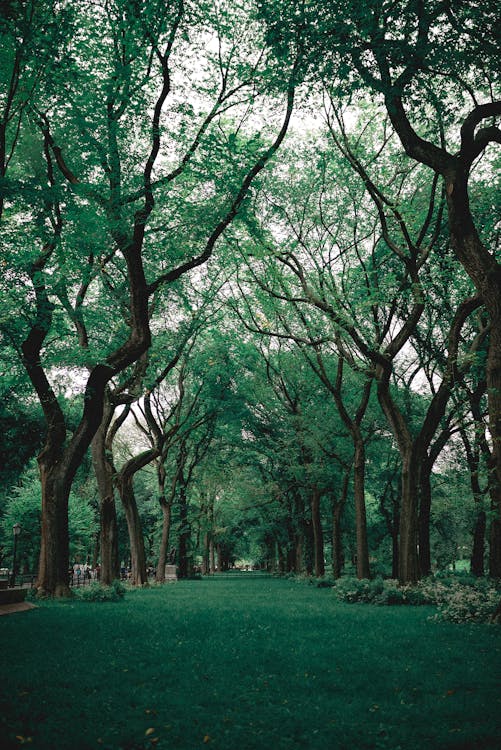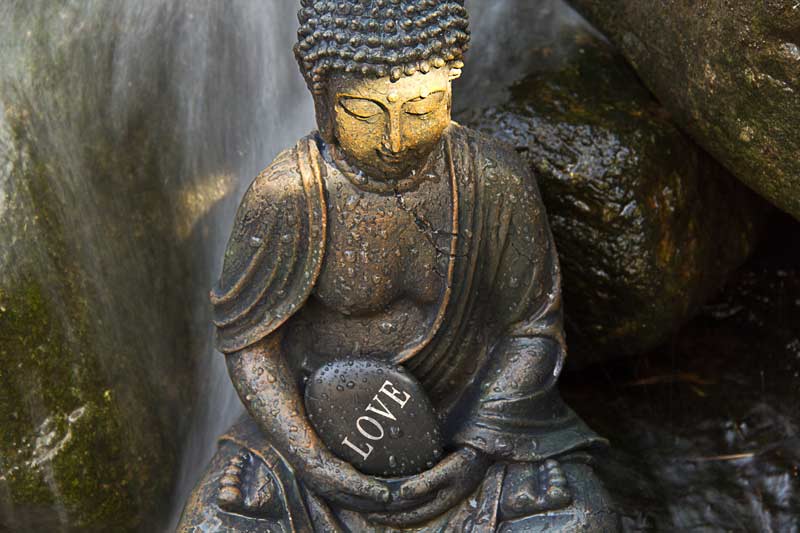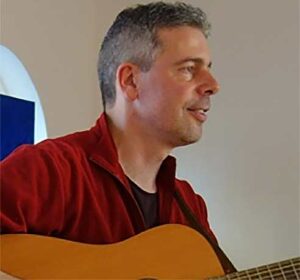Healing feelings and the power of connectedness
Author: Andreas Schelakovsky, Mag. Sabine Rohart
What can we do to heal our relationship to the earth? Depth ecology points to a path that goes through our feelings. Whereby it is not about feeling only “beautiful” things, but about going into the depths. There, on the one hand, the pain and despair about the state of the world await us, and on the other hand, the connectedness with all living beings. This ever bubbling source of vitality gives us the strength and the love to truly live our change.
Why is it that we all basically agree that we want to leave a world worth living in to our children and our children’s children. And yet seem to be well on the way of failing to do so?
It is only natural that our present situation and our dark future prospects cause fear.
But because we are afraid of pain, and despair is an emotion tabooed by society, these feelings are generally not expressed.
It is not enough to discuss the current crisis on an informational and factual level alone. Nor is it enough to wake up the public by conveying increasingly horrific factual information. For this kind of information all too often reinforces resistance and deepens feelings of helplessness and apathy. Rather, we need to help each other process this fear-inducing information at an emotional level as well. This is where deep ecology education work comes in.

SHALLOW OUTLINE OF DEOTH ECOLOGY
For our intention to describe depth ecology, we can take up the image of a tree: It is ancient, and its roots find their support in the treasure of wisdom of countless cultures that came before us. Through its roots it has contact with the source that all sentient beings use. The tree is unique, and even depth ecology is far from monopolizing anything. Why should it, there is so much there!
The crown with the canopy connects it with the universe. Through the crown we are also related to the stars and to the ever shining sun. Anchored in the stability of the roots and connected to the freedom and visionary power of the crown, we ultimately find the strength that no storm can overturn. The trunk that defies all storms symbolizes our potential. In everyday life this is represented in three aspects that we will describe in more detail below: Deep Questioning, Deep Experience and Deep Commitment.

THE METHODS OF DEPTH ECOLOGY
Asking deep Questions is the on thing Depth ecology is concerned with. Such as the nature of financial markets, our needs, the carrying capacity of natural systems, the future-friendliness of technologies, nature and the soul.
Depth ecology is also a store of directional and future-friendly philosophies.
Educational workof depth ecology aims to create spaces within, where people can have experiences that go deeper than purely intellectual engagement. In particular, the emotional dimension of the human being offers us a great potential of profound experience.
In order to provide this experiential dimension, a variety of methods of nature and self-experience, social and global learning, and spiritual practice have been and continue to be gathered. These are drawn from the various fields relevant to holistic education. It integrates, among others, insights from systems theory, brain research, psychology, solidarity economy, ecofeminism and ecology, as well as the wisdom treasure of many traditions, such as occidental philosophy, Christian theology of creation, Buddhism or shamanism.
Once people have recognized their situation and explored their emotional response to the state of the world, the desire for committed action usually arises – not from moral exhortation, but from an “inner knowing of connectedness.”
WORK OF DESPAIR: SPACE FOR PROCESSING STRESSFUL FEELINGS
Those who make “sustainability” a topic for themselves and others also bring the current global threat into focus. With it the inevitably activated emotions such as fear, oppression, despair and helplessness. The meta-theoretical approach funds on a special form of psychological peace work known in the USA as “despair and empowerment work” (also shortened to “despair work”). It is the response to the threats facing our earth and the living beings that dwell on it (cf. Macy 1986).
The present crisis affecting our whole planet has moved closer to our feeling and thinking. It includes both the still real threat of nuclear war and the ongoing destruction of our life systems. The spread of human misery on an unprecedented scale, and the fact that for the first time in history it is questionable whether humanity as a whole will survive.
The current crisis requires a conscious mental and spiritual confrontation with it, in a way that gives strength and makes visions of positive change possible.

THE DEEPER YOUR ECOLOGY THE DEEPER THE CONNENCTION
Terrifying figures guard the entrance to many ancient temples. Only when we face them – equipped with our resources – when we step through our horror and anguish. Only then we find the entrance to the truth that awaits us. There we find the interconnectedness with all life, our “depth ecology” with all that it promises us. This new consciousness comes to us like a grace. Stephen Levine, a meditation teacher, says grace is “a sense of inner connection, the experience of our very nature.”
“It means that we should wake up, get up, get going. We are to be counted on!
We are presently reminded of our place on this earth. There are duties to fulfill – to ourselves, to our families, to our nations, to nature and to the Creator. For we are being noticed in the spirit world.”– Joanne Shenandoah
About the authors
 Andreas Schelakovsky, ecologist with a focus on environmental psychology and education. Pioneer (since 1989!) of depth ecological education in Austria. Projects for children, youth and adults, mainly active in the training of multipliers. Currently quite slowed down by a brain disease (Parkinson’s), but he cannot be stopped.
Andreas Schelakovsky, ecologist with a focus on environmental psychology and education. Pioneer (since 1989!) of depth ecological education in Austria. Projects for children, youth and adults, mainly active in the training of multipliers. Currently quite slowed down by a brain disease (Parkinson’s), but he cannot be stopped.

Mag. Sabine Rohart, trained trade scientist with a focus on environment and economy as well as languages. Active in international trade. Leads women’s circles in her spare time and assists in holding depth ecology workshops. Since 2019 in the organizing team of the Greenskills course for future-oriented living and sustainable building.
This article was originally published on the German Homepage of Tattva Viveka: Tiefenökologie




